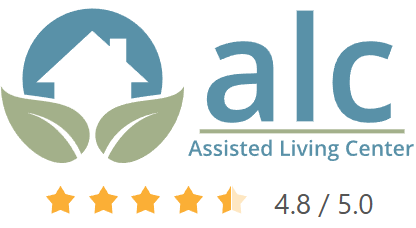Life puts us in situations we never could have foreseen. Take Sarah, for instance. She is looking for quality home care in Cheviot Hills for her aging mother who has been living alone ever since she retired.
Sarah is swamped with work and concerned about the outcome of her upcoming child custody hearing because she and her estranged husband failed to work things out. No wonder she didn’t notice that her mom was becoming increasingly forgetful, and for reasons other than old age. Little does she know that her mother’s condition could deteriorate rapidly without proper care and treatment.
Many seniors experience memory issues and this is a normal part of getting old. But for some seniors, these issues are signs of a more serious predicament: Alzheimer’s disease or other forms of dementia. Being diagnosed with dementia is devastating news for the person with the condition and their loved ones.
So what is a memory care and what are its benefits for individuals struggling with dementia-related memory loss? What are the more affordable alternatives to memory care?
What is included in memory care?

Memory care is a specialized form of adult care. It is sometimes also referred to as Alzheimer’s care, because Alzheimer’s disease is the most widely known form of dementia. Within memory care, individuals struggling with a form of dementia receive 24-hour care whereas specialized memory care facilities also provide housing combined with 24-hour care.
These facilities focus on making the residents’ living environment safe and comfortable. The environment is uniquely designed to create a sense of familiarity and intimacy, reduce confusion and prevent wandering. These are typical behaviors of individuals battling dementia which may have devastating consequences.
Memory care can have a considerable positive impact on patients with dementia and greatly improve their quality of life. Patients get to spend time in a secure, familiar environment and specialized staff takes care of their needs.
However, memory care is expensive. Although Medicare covers some aspects of dementia, the vast majority of patients cannot afford it. This is why their families often look for alternatives such as adult day care services, family caregivers or home caregivers with experience in assisting clients with dementia.
What is the difference between assisted living and memory care?
Individuals with memory loss caused by Alzheimer’s or other forms of dementia can be physically fit and mobile, especially in the early stages of the disease. But as the condition progresses, they require a higher level of care, assistance, and supervision.
The staff at a memory care facility has undergone specialized training. They have experience in helping patients with dementia. Residents may also have access to and benefit from memory-enhancing therapies. On the other hand, memory care facilities may be too restrictive for someone with early onset of dementia.
Assisted living facilities, on the other hand, are primarily intended for individuals who are unable to cope with daily activities and need assistance with meal preparation, personal hygiene, medication regimens, etc., usually because of considerable mobility issues or other medical conditions. This housing facility is suitable for people with disabilities but it is also available to other individuals who cannot or choose not to live independently and on their own.
How do you know if your loved one needs memory care?
A person does not need to be officially diagnosed with a dementia-related condition for its friends and family to know that something is wrong. Often, a person with dementia will undergo a radical, visible decline in overall health.
Signs and symptoms of dementia can become more dangerous over time and lead to life-threatening outcomes, so it’s important to seek help as soon as possible. In addition to serious signs of memory loss, the person may show the following physical signs:
- Issues with the medication regimen (skipping doses or overdosing)
- No food in the house
- Various forms of self-neglect (lack of personal hygiene, poor feeding, not wearing appropriate clothing, not tending to medical conditions)
- Drastic weight loss
- Hunched posture
- Strange bruising, fractures or other injuries
- Unpaid bills
- Missing important appointments
- Alienation from social circle
Individuals with dementia need person-centered dementia care within a full continuum of care coordinated across other physical and mental health care services. But especially beneficial for dementia patients is that they feel safe, comfortable, and familiar with their living environment.
If you notice signs of memory loss in a family member, it may be time to consult a specialist and see if your aging loved one may be battling a chronic illness. That way, they can start treatment in a timely manner.
Your safest choice for homecare in Cheviot Hills and other LA neighborhoods

Catering to the specific needs of your aging loved one can be challenging and demanding, especially if they are experiencing dementia-induced memory loss. But that does not mean they need to resign themselves to a life of solitude and infinite restrictions.
No environment feels as secure as home. This is where we come in. We can match you with experienced caregivers who are capable of dealing with any scenario. We can help you find a compassionate and caring senior care professional with a kind and patient bedside manner, one who will show up at your loved one’s home in Cheviot Hills or elsewhere in LA ready to provide them with the care they need. Contact us today to find out more.








